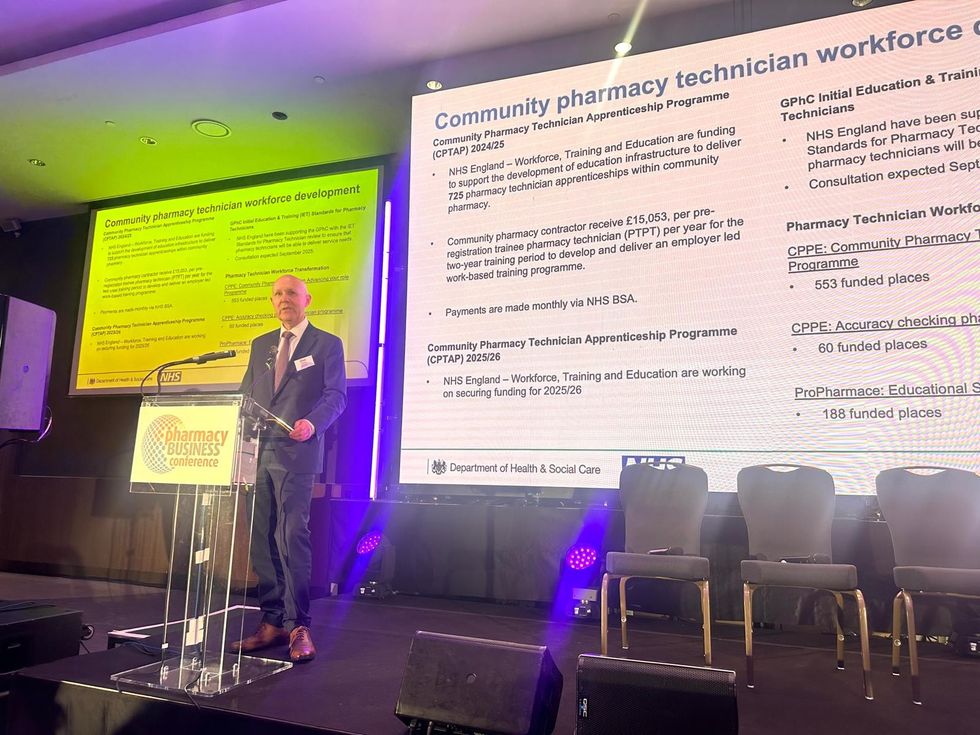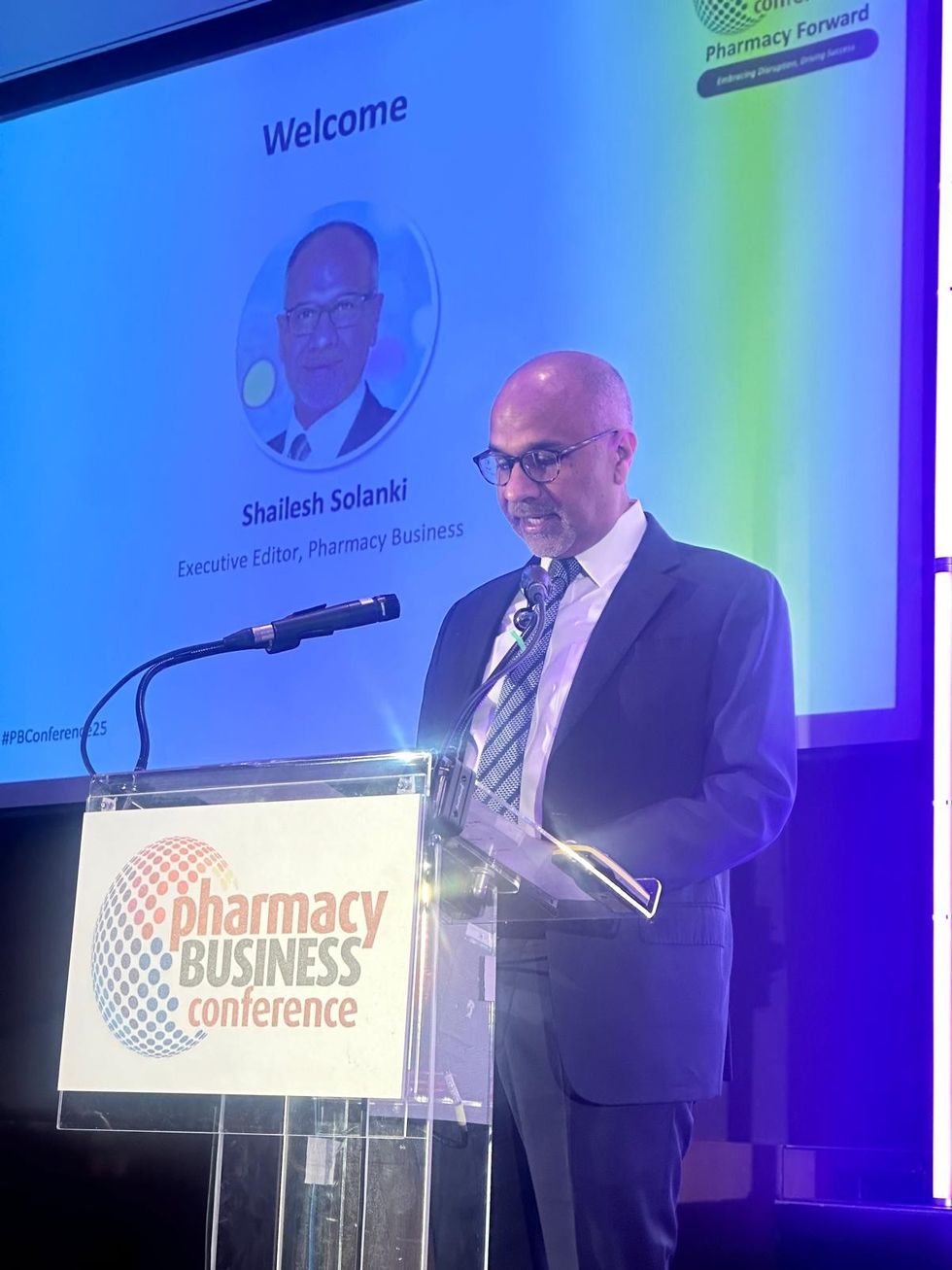Saheed Rashid explains how community pharmacy teams can play a vital role in helping early diagnosis of prostate cancer by identifying the warning signs…
Prostate cancer is the most common cancer among men in the United Kingdom, affecting nearly 50,000 men yearly. Combined with the challenges faced across healthcare during COVID-19, new figures show that prostate cancer accounts for a third of cancers not treated due to the pandemic, with 14,000 ‘missing patients’ believed to have not undergone treatment since April 2020. It is more urgent than ever that men are encouraged to get checked, as any set-backs in diagnosis can reduce the pathways available, in turn affecting health outcomes.
Community pharmacy teams play a crucial role in signposting the help available for men who may be concerned about their health. Therefore, it is vital that pharmacy teams have access to the information they need to correctly direct men to seek prostate cancer guidance. By maximizing the trusted relationship between patients and their pharmacists, more can be done to identify the warning signs, helping men to get an earlier diagnosis.
Symptoms
Prostate cancer mainly affects men over 50, with the most common age diagnosis being between 65 and 69 years. People of African-Caribbean family origin are at higher risk of prostate cancer, and/or if there has been a family history of the disease through a man’s father or brother.
A man’s risk of developing the condition can also be increased through weight and diet, as research suggests there may be a link between obesity and/or diet and prostate cancer. However, studies have found that pharmacists play a key role in improving levels of physical activity and diet of men, particularly those with prostate cancer.
Symptoms vary between individuals, and often, men may not show any warning signs of prostate cancer, especially during the early stages. However, some common signs of prostate cancer include:
- Passing urine more frequently
- An urgency to urinate
- Blood in your urine or semen
By being aware of the potential symptoms and identifying the men most at risk, pharmacists can help to redirect patients to their GP to double check any concerns they have about their health.
Diagnosis process
There is currently no single, definitive test for prostate cancer. Although once a man does go to his GP to raise any health concerns, they will typically ask for a urine sample, examine your prostate (digital rectal examination) and/ or take a blood sample to test their level of prostate-specific antigen (PSA test).
This is what Peter Cox, a 66-year old man from South Gloucestershire, did as he found that he was regularly going to the toilet back in 2016, at the age of 61, who then visited his GP and was offered a PSA test.
The PSA test is free to any well man who is aged 50+ and requests it from his local doctor. It is a simple blood test to help detect cancer by measuring the level of antigen in the blood. The higher the PSA level is, the more likely a prostate problem is present.
If the PSA test is abnormal, the man will typically be referred to the hospital for an MRI scan of the prostate, and if a problem is presented, it can then be targeted later with a biopsy – either transrectal (TRUS) or transperineal (TP).
When undertaking his PSA blood test, Peter’s score came back high, which led his GP to refer him for a biopsy at Bristol Oncology Centre, where they later confirmed that he did have prostate cancer.
Luckily for Peter, his cancer was caught early and was contained in the prostate, allowing him more choice on his possible treatment options. Pharmacists can support patients in educating them as to what the PSA test is and when it becomes available to them. Combined with the above knowledge of the signs of prostate cancer, they can also advise patients to seek further investigation from their GP, if necessary.
Treatment pathways
As pharmacists understand, patient choice is vital – and that demands accurate and informed discussion about the benefits and drawbacks of every treatment. It’s important that patients are aware of all of the available pathways they have, as well as any potential side effects.
The first consultation must be open and honest, outlining the various options - not just surgery to remove the prostate. It’s also just as important for pharmacists to be aware of the treatment options and side effects, as they play an active role in communication with the patient after treatment, such as incontinence and hormone therapy to administer the right advice or medication.
Peter was presented with information for each of the treatment pathways available, including radiotherapy and radical prostatectomy, and took time to speak with his urologist about what would be the best pathway for him.
He decided to go for brachytherapy, a targeted form of internal radiotherapy, because this option is less invasive with not as many side effects, including on his lifestyle so that he could get back up and running quickly.
Soon after his treatment, Peter was able to go back to living a normal life without experiencing any problems with urination. He continues to be monitored by his local GP, and every six months he undertakes a PSA test, which has remained at a low score of 0.02.
Conclusion
Taking action over potential symptoms is the first vital step in the prostate cancer pathway, and pharmacists play a key role in becoming a health educator. Peter’s case study is an example of the type of scenario where a pharmacist can support, alongside the GP, a patient’s prostate cancer journey. # Therefore, it is crucial to ensure that pharmacists are educated and enable their involvement in bettering the prostate cancer pathway for all men, assisting in the prevention and management of symptoms, and then side effects of treatments later down the line.
Saheed Rashid is managing director at BXTA.














 Health Secretary Wes Streeting addresses Pharmacy Conference via video
Health Secretary Wes Streeting addresses Pharmacy Conference via video  David Webb, chief pharmaceutical officer of NHS England
David Webb, chief pharmaceutical officer of NHS England Shailesh Solanki, executive editor of Pharmacy Business
Shailesh Solanki, executive editor of Pharmacy Business L-R: Yasmin Karsan, Pritee Panchmatia and Fin McCaul
L-R: Yasmin Karsan, Pritee Panchmatia and Fin McCaul  L-R: Baba Akomolafe, Rachna Chhatralia, Patricia Tigenoah-Ojo and Raj Matharu
L-R: Baba Akomolafe, Rachna Chhatralia, Patricia Tigenoah-Ojo and Raj Matharu L- R: Nicola Stockmann, Robert Townsend, Atul Patel and Amerjit Singh
L- R: Nicola Stockmann, Robert Townsend, Atul Patel and Amerjit Singh Wole Ososami, lead pharmacist at Westbury Chemist
Wole Ososami, lead pharmacist at Westbury Chemist

